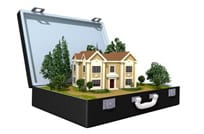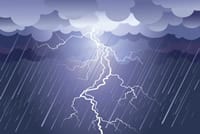
It’s time to get your home ready for the upcoming winter months. The Farmer’s Almanac predicts another snowy winter here in the northeast.
Here are some things that we do at our house:
1. Get all the patio furniture cleaned and put inside if possible. We have a lot – and most comes inside – but there are a few pieces that are too big and heavy. For the pieces that stay out, we put those orange cones atop the table and cover with patio furniture covers. This prevents the water from puddling up. Make sure to secure the covers tightly.
2. Turn off the outside water and drain the lines. You don’t want to have to call a plumber in the middle of winter to fix a frozen line. Remember to bring in the outside garden hoses once you have drained them.
3. Clean those gutters before you have problems. Scoop out the debris from inside (even if you have gutter guards), so that the water can flow easily. Remember to clean out the down spouts too.
4. While you are on your roof… Check for leaks that might need fixing, cracks, and moss growing in the roof (not a good thing as moss holds moisture and that can mean rot). Don’t forget to look around the chimney. All these could become a major problem as we get into winter. As I have told you, it’s easier to fix a small issue now rather than a major issue later. You can either do this yourself or call a professional for help.
5. Get your heating systems tuned up and serviced before winter to make sure it’s in working order. There is nothing worse than waking up to no heat on a cold winter morning.
6. Caulk around the windows to seal up any drafts. You don’t want leaky, drafty windows sucking the heat outdoors. You should caulk every few years as preventative maintenance.
7. Because winter storms can mean loss of electricity… You will want to check up on your emergency supplies – lanterns, batteries, flashlights, battery powered radio, warm blankets, non-perishable food with a manual can opener, bottled water, and matches if you want to cook on the barbecue grill.
It’s much better to prepare ahead of time and do little projects now while the weather is nice. You don’t want to deal with emergency repairs in the winter.

 It’s Hurricane Season! At least it will be on June 1st on the Atlantic side. That gives you 2 weeks to plan your strategy – just in case.
It’s Hurricane Season! At least it will be on June 1st on the Atlantic side. That gives you 2 weeks to plan your strategy – just in case. 4. Charge your cell phones. Assume you’ll be without electricity for a few days. After the storm, use your phone sparingly.
4. Charge your cell phones. Assume you’ll be without electricity for a few days. After the storm, use your phone sparingly. 8. Prepare your food pantry. If you are staying in place, make sure you have non-perishable food and water (and a manual can opener). Non-perishable means boxed or canned – they last longer than fresh foods or foods that require refrigeration. Don’t buy items that require milk, eggs, or cheese to prepare. If they’re pre-cooked, that’s even better – they might taste better heated, but it’s not necessary. Buying non-perishables is something you can do right now. Stores sell out fast, so it’s good to have your prepper foods before the hurricane is spotted.
8. Prepare your food pantry. If you are staying in place, make sure you have non-perishable food and water (and a manual can opener). Non-perishable means boxed or canned – they last longer than fresh foods or foods that require refrigeration. Don’t buy items that require milk, eggs, or cheese to prepare. If they’re pre-cooked, that’s even better – they might taste better heated, but it’s not necessary. Buying non-perishables is something you can do right now. Stores sell out fast, so it’s good to have your prepper foods before the hurricane is spotted. 10. Cash! When power outages happen, credit card and ATM machines may not work. Hurricanes bring widespread power outages, downed trees and flooding. It might not be easy (or possible) to drive far enough to find a store or bank that still has electricity.
10. Cash! When power outages happen, credit card and ATM machines may not work. Hurricanes bring widespread power outages, downed trees and flooding. It might not be easy (or possible) to drive far enough to find a store or bank that still has electricity.




